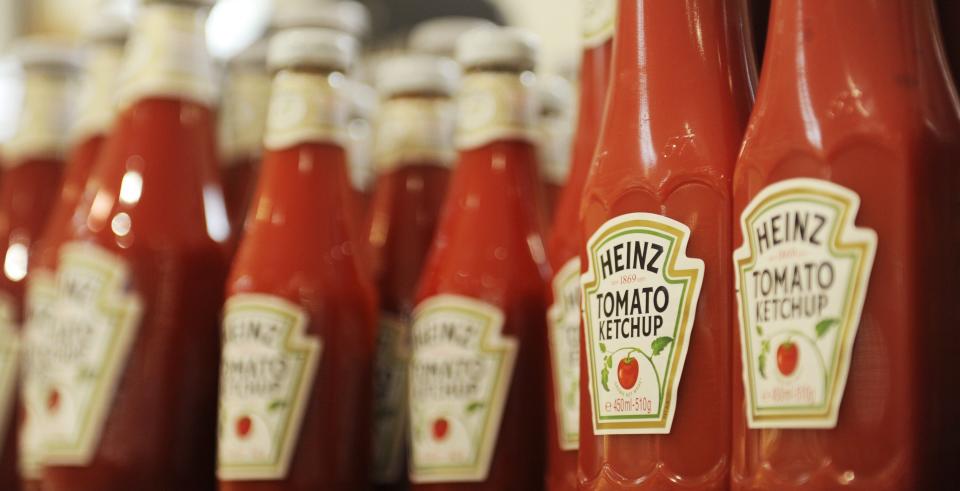What you should and shouldn't put in the fridge
It’s been an ongoing debate between housemates and married couples for years – but should you keep your tomato sauce in the fridge?
Also, how should you treat your bread? Where do the eggs go?
Yahoo News Australia spoke to CSIRO senior food microbiologist Cathy Moir about where you should really be storing your food.
Avocados and other fruits
Mrs Moir said avocados, tomatoes and other forms of produce including watermelons can be left out on the kitchen bench “when they’re whole”.
“It’s when you cut them open you introduce them to micro organisms,” she said.
“This is especially true with melons. Melons have been associated with food poisoning because they’re less acidic than apples and other fruits.
“Once you penetrate the skin surface of the produce it has to go in the fridge.”

For those looking to enjoy an avo on toast at home, Australian Avocados recommends hass and shepard varieties be stored in a fruit bowl until ripe.
You can also speed up the ripening process by placing the avocado in a brown paper bag with a banana or an apple.
Eggs
Eggs have to be stored in the fridge.
“This will maintain egg quality and considerably lengthen storage life. They should preferably be stored in their cartons to reduce moisture loss through the shell,” according to CSIRO.

Their shelf life can vary depending on the temperature the eggs were during distribution.
Most stores don’t keep eggs refrigerated and this can affect potential shelf life.
Bread
Mrs Moir said bread can be kept in the fridge to slow down the growth of micro organisms.
“It should slow down moulding,” she said.
However, according to Good Housekeeping magazine, while keeping bread in the fridge can slow down mould growth it can decrease its quality as it will grow stale and hard quicker.

It also recommended keeping bread you buy from the bakery in its brown paper bag to absorb any moisture.
Moisture makes bread go hard and rubbery.
Peanut butter and spreads
Spreads such as peanut butter are fine to be stored outside the fridge.
“Peanut butter and Vegemite have a high sugar content but low acid,” Mrs Moir said.
“They can cope with being in room temperature.”
Some spreads can last longer if they are refrigerated though.
According to the National Peanut Board of the USA, an opened jar of peanut butter will last two to three months unrefrigerated while one kept in the fridge will last six to nine.
Honey shouldn’t be kept in the fridge though, according to Better Homes and Gardens.
While it’s still fine to eat if it’s kept in the fridge, it can crystallise and make it harder to spread on your morning toast.
Sauces including tomato
It’s been long-debated whether tomato and BBQ sauces should be kept in the fridge.
“It’s best to read the instructions – some BBQ sauces tell you to keep them refrigerated once they’re opened to stop them from spoiling,” Mrs Moir said.

Heinz recommends refrigerating its ketchup after opening as its stability “can be affected by storage conditions”.
“We recommend that this product be refrigerated after opening,” Heinz said.
“Refrigeration will maintain the best product 'quality' after opening.”
Other refrigerated items and their shelf life
Seafood (three days)
Crustaceans and molluscs (two days)
Butter (eight weeks)
Cottage, ricotta and cream cheeses (10 days)
Soft cheeses – camembert and brie (two to three weeks)
Coffee beans
Mrs Moir said from a microbiological standpoint coffee could be kept at room temperature.
“However, some people keep it in the fridge,” she said.
“By doing that it can lose its volatile flavour over time.
“It’s best to keep coffee out of the fridge.”
Best before versus use by date
Mrs Moir said use by dates are found on perishable items such as dairy and meat.
“There’s quite a distinction between use by and best before dates,” she said.
“Best before dates are more for things like biscuits, jams and sauces. These products won’t be unsafe to eat if the best before date is in nine months time and you consume them one day past that date.

“People think, ‘I have to throw that out’ once it’s past the best before date but that’s not always the case.
“However, if someone consumes a food item past its use by date it’s potentially unsafe.”
Do you have a story tip? Email: newsroomau@yahoonews.com.
You can also follow us on Facebook, download the Yahoo News app from iTunes or Google Play and stay up to date with the latest news with Yahoo’s daily newsletter. Sign up here.



